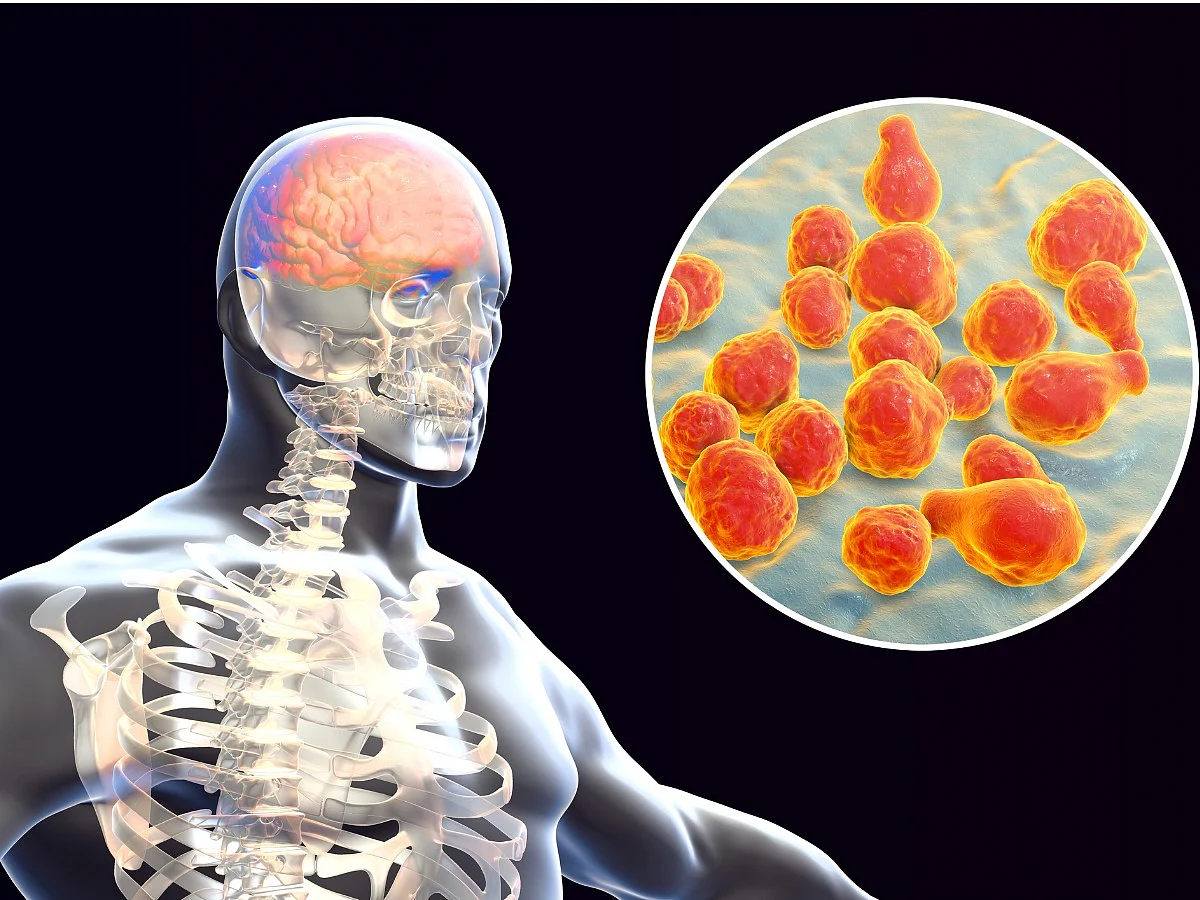Fungal Meningitis: Symptoms, Causes, Diagnosis & Treatment
Check the causes, symptoms, diagnosis, and treatment for fungal meningitis.

advertisement
Meningitis is a condition in which the protective lining around the brain and spinal cord becomes swollen. This protective lining is known as the meninges and swelling in this part is a serious issue. The swelling occurs when the germs enter the body and infect the fluid around the brain and spinal cord.
Fungal meningitis is a rare and serious type of meningitis. It develops from a fungal infection that reaches the brain and spinal cord, primarily affecting people with weakened immune systems.
Now, we have a look at the causes, symptoms, diagnosis, and treatment of fungal meningitis in detail.
Fungal Meningitis: Symptoms
According to doctors of the Mayo Clinic, fungal meningitis can cause various symptoms, including:
stiff neck
headaches
fever
nausea
vomiting
increased sensitivity to light
altered mental state, such as confusion
hallucinations
Fungal Meningitis Causes
According to the Cleveland Clinic, here are the following fungi that commonly cause fungal meningitis:
Cryptococcus neoformans
Histoplasma
Coccidioides
Blastomyces
Candida
Risk factors for fungal meningitis include:
Newborns
Individuals with weakened immune systems through diseases like cancer, diabetes, and HIV or AIDS
People on long courses of antibiotics
People taking steroids, chemotherapy drugs, or rheumatoid arthritis medication
Patients with intravascular catheters
Patients who had recent organ or bone marrow transplant
Fungal Meningitis: Diagnosis & Treatment
Your doctor may recommend different tests for confirming fungal meningitis. In a few cases, tests may include taking samples of blood or cerebrospinal fluid that surrounds the spinal cord for laboratory testing.
These tests can also help doctors detect which fungus is causing the infection which might play an important role in the treatment.
According to Healthline, a healthcare provider may give you high dosages of antifungal medication to treat fungal meningitis. Treatment generally requires a long course of antifungal medication and you may have to initially receive medication intravenously before taking oral medication.
The treatment can depend on the type of fungus and the severity of the infection.
To treat a Cryptococcus infection, doctors may use medications:
amphotericin B (Fungizone)
flucytosine (Ancobon)
fluconazole (Diflucan)
For a Histoplasma infection, an antifungal medication called itraconazole (Sporanox) is generally prescribed for 3–12 months, depending on the immune system and the severity of the fungal infection.
Doctors may also use itraconazole to treat a mild or moderate Blastomyces infection. For more severe infections, people may need amphotericin B while patients suffering from a Blastomyces infection may need treatment for 6–12 months.
Coccidioides fungus may need lifelong treatment with antifungal medication. For Candida infection, doctors prescribe a class of antifungal drugs called echinocandins that are delivered intravenously.
(At The Quint, we question everything. Play an active role in shaping our journalism by becoming a member today.)